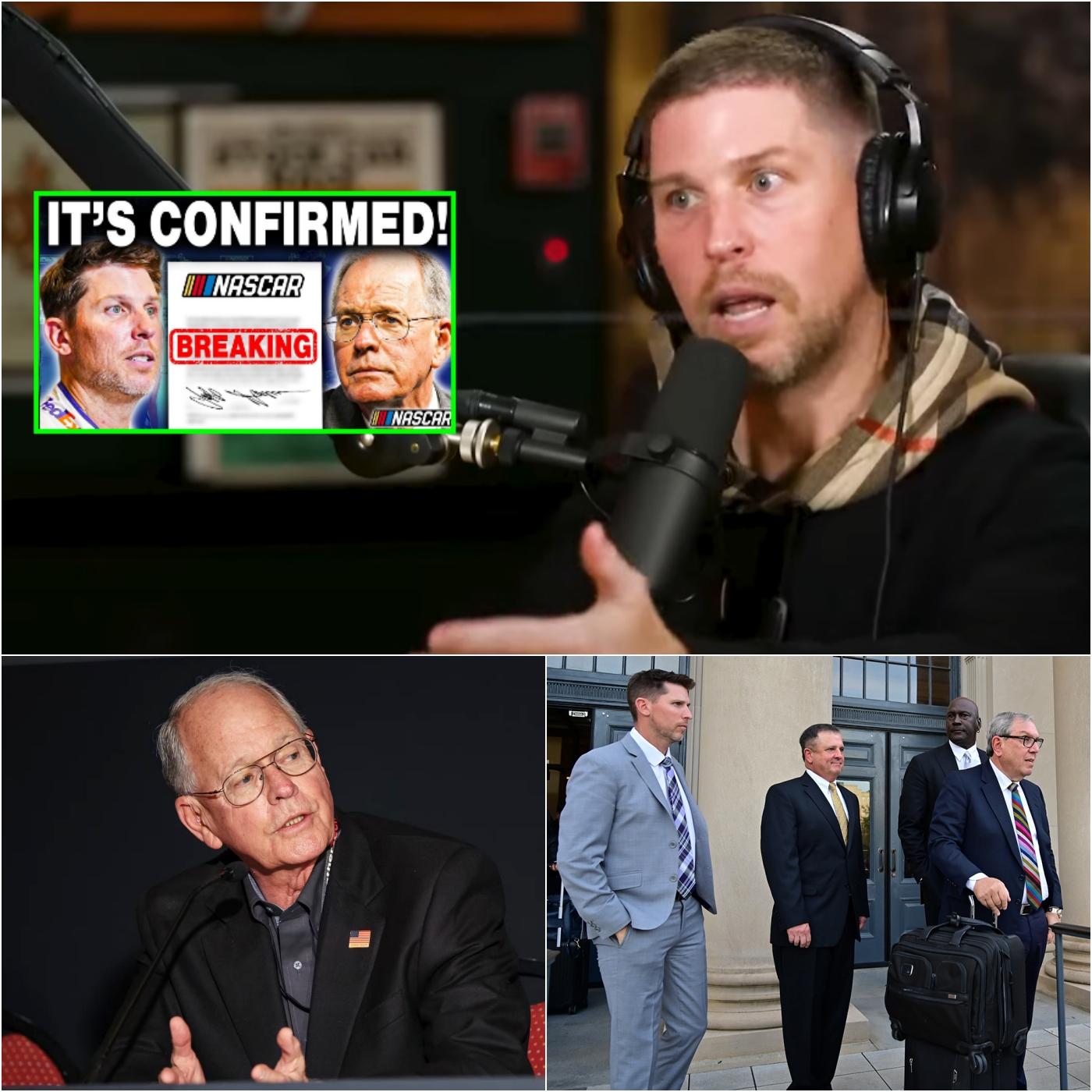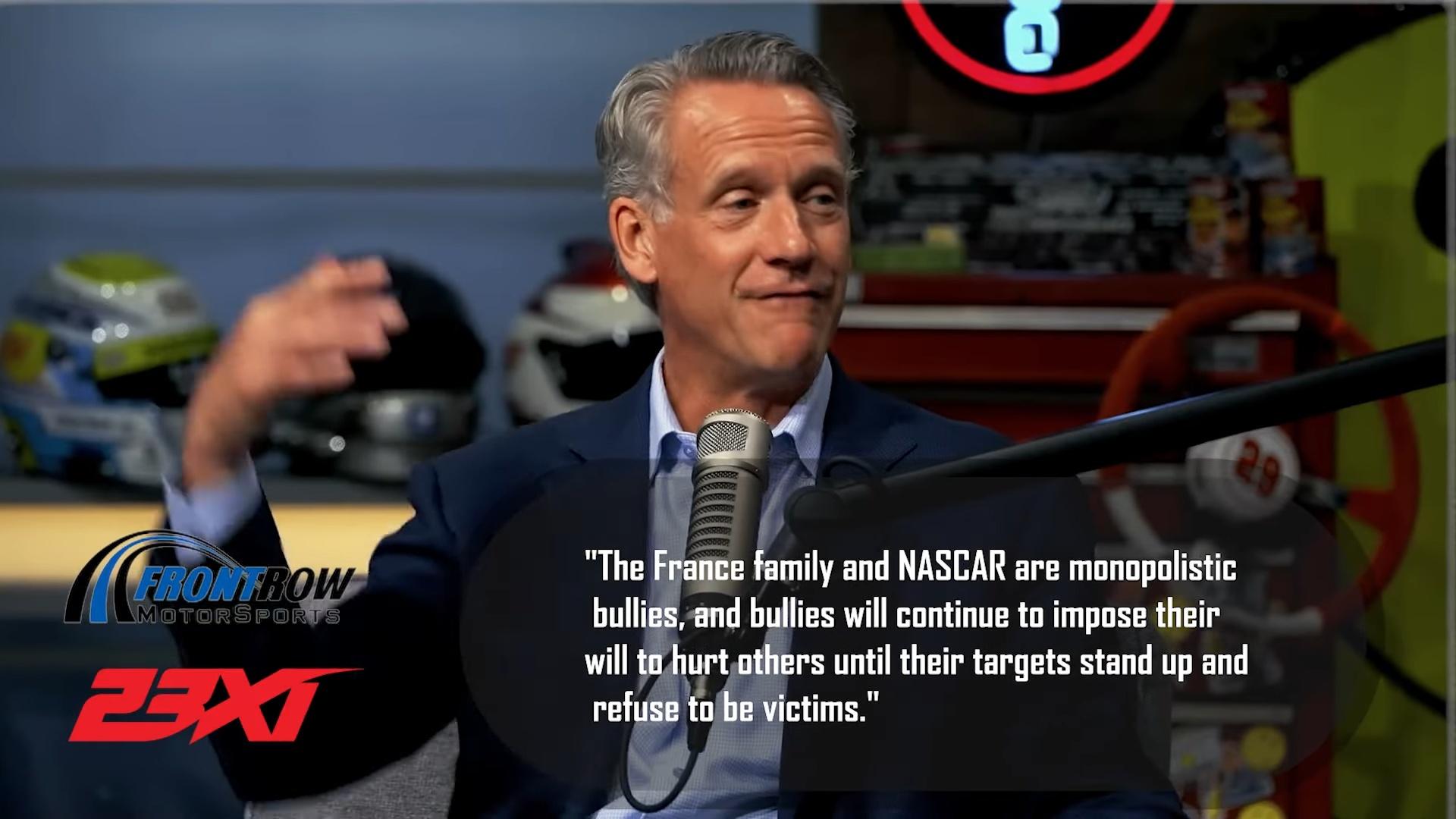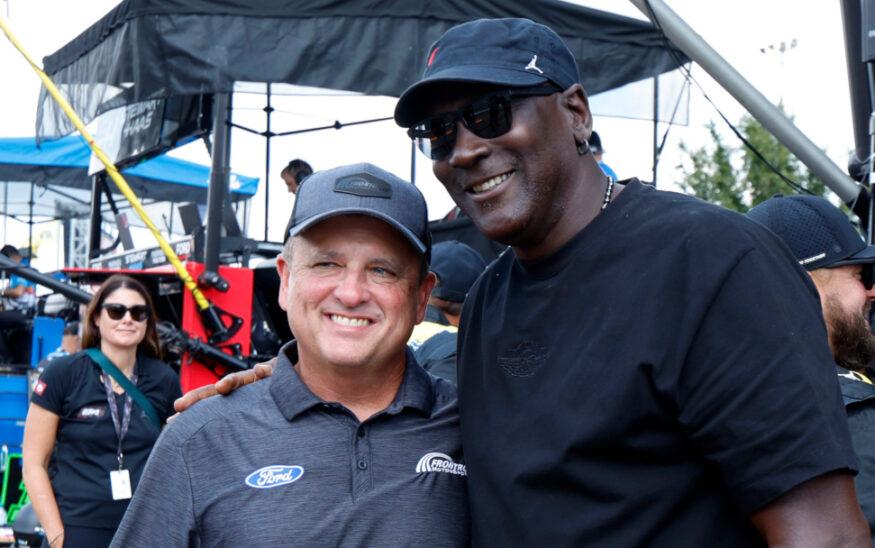The world of NASCAR is no stranger to high-speed drama, but the latest saga unfolding off the track is proving to be just as gripping as any race. Denny Hamlin, a three-time Daytona 500 winner, and basketball legend Michael Jordan, co-owners of 23XI Racing, have ignited a firestorm in the stock car racing world with their bold legal challenge against NASCAR’s charter system. This isn’t just a courtroom skirmish—it’s a high-stakes showdown that could reshape the future of the sport.

At the heart of the conflict is NASCAR’s charter system, a framework introduced in 2016 that guarantees race entries and a share of the prize money for select teams. For years, it’s been hailed as a stabilizing force, akin to a franchise model in other sports. But not everyone sees it that way. 23XI Racing, alongside Front Row Motorsports, has taken a stand, refusing to sign NASCAR’s latest charter agreement. Their reasoning? They claim the system locks teams into unfair terms, stifling competition and funneling profits to NASCAR and its founding France family while leaving teams scraping for scraps.
The legal battle took a dramatic turn when a federal appeals court recently overturned a preliminary injunction that had allowed 23XI Racing and Front Row Motorsports to race as chartered teams in 2025. This ruling stripped both teams of their guaranteed spots in NASCAR’s Cup Series races, forcing them to compete as “open” teams. The financial implications are staggering—without charters, teams face a potential loss of tens of millions in revenue, as open teams receive a fraction of the purse and lack the security that attracts top sponsors and drivers. For 23XI Racing, this could jeopardize contracts, including that of their star driver Tyler Reddick, last year’s regular-season champion.

Undeterred, Hamlin has come out swinging. In a statement that sent shockwaves through the racing community, he declared his team’s commitment to race on, charter or no charter, vowing to fulfill all obligations and compete at the highest level. His defiance is matched by Michael Jordan, whose global fame has amplified the story far beyond the racetrack. Jordan, no stranger to competitive battles, is leveraging his media savvy to keep NASCAR under pressure, turning this legal fight into a public spectacle that’s impossible to ignore.
NASCAR, however, isn’t backing down. In a bold countermove, the organization filed a lawsuit accusing 23XI Racing and Front Row Motorsports of colluding to form an illegal cartel to negotiate better charter terms. NASCAR’s legal team argues that the teams’ refusal to sign the 2025 agreement is a calculated attempt to dismantle the charter system entirely, a move they claim would destabilize the sport. They’ve even pointed fingers at Curtis Polk, a key figure in 23XI Racing and Jordan’s longtime business partner, alleging he orchestrated an illicit boycott. The teams fired back, calling NASCAR’s accusations a desperate attempt to intimidate and silence dissent.

What makes this saga so captivating is the potential for broader change. Whispers in the racing world suggest that other independent teams might rally behind 23XI and Front Row, forming a united front to demand fairer terms. If successful, this alliance could force NASCAR to rethink its charter system, potentially opening the door to a more competitive and equitable sport. Imagine a NASCAR where teams have greater freedom to compete, innovate, and share in the sport’s massive profits—something fans, drivers, and sponsors alike could rally behind.
Despite the courtroom chaos, 23XI Racing remains laser-focused on the track. The team, which fields cars for Bubba Wallace, Riley Herbst, and Tyler Reddick, is chasing victories to bolster its credibility and fan support. A win, especially at a high-profile race like the upcoming FireKeepers Casino 400, could send a powerful message: 23XI Racing is here to stay, with or without NASCAR’s blessing.
As the antitrust lawsuit heads toward a December trial, the stakes couldn’t be higher. Will Hamlin and Jordan’s gamble pay off, forcing NASCAR to loosen its grip on the sport? Or will the racing giant hold firm, reinforcing its control? One thing’s certain—this battle is far from over, and it’s one that every racing fan will want to follow. Share this story and join the conversation about the future of NASCAR.





